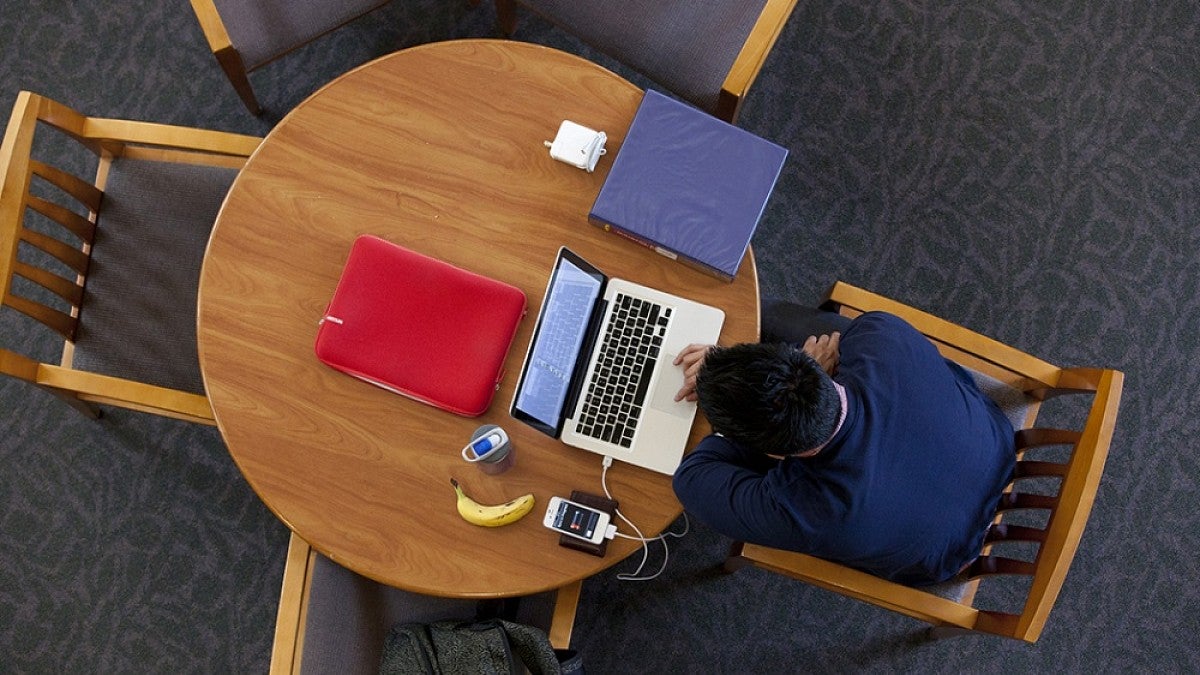Navigating the ins and outs of college can be difficult for any new student. Financial aid, class selection, study habits — all of these hurdles can seem that much higher when one is the first in their family to face them.
To help first-generation college students tackle the challenges of transition, campus partners are inviting students, faculty members and staff to attend the First-Generation Student Celebration on Friday, Nov. 8, from 11 a.m. to 1 p.m. in the Diamond Lake Room, Erb Memorial Union.
“College is hard, period,” said Tara Parrillo, director of TRIO Student Support Services at the University of Oregon and a member of the event’s work group. “But having all these layers of being the first really makes it a challenge. We need as many people as possible to tell these students that they’re worthy and they can do it.”
UO President Michael H. Schill, himself a first-generation student, is scheduled to give the welcome. A panel discussion will be followed by a reception with heavy appetizers.
Being held in connection to a nationwide observance, a main goal of the celebration is to break down the barriers between students, staff and faculty members, to help silence the doubts that first-generation students often have.
“I want our students to feel seen,” Parrillo said, “and I think they’ll start to feel that they belong if they can identify more with their instructors. The learning community will be so much stronger.”
For example, Parrillo explained that some first-generation students are hesitant to attend office hours because they think that their professor is too important.
“We need to break down that barrier,” Parrillo said. “We want these students to recognize that their instructors are people just like they are and may have been first-generation students, too. We need to tell them, ‘You are worth it, you do deserve to take some of their time, and they’ll appreciate it if you do.’”
To that end, first-generation faculty and staff members who attend the reception can take away “I am First Gen” placards that can be posted on their office doors or in their workspaces, said D.J. Kelly-Quattrocchi, coordinator of multicultural education, engagement and student success in the Office of the Dean of Students.
“These cards are a way for first-generation students to see who at the UO are the first in their families to complete a bachelor’s degree,” said Kelly-Quattrocchi. “It’s my hope that students will see them and know that the staff or faculty member can be a resource to support them as they work toward their own goals of graduation.”
Another component of the reception will be connecting students to campus resources like TRIO Student Support Services, a federally funded college retention program at the UO. The program serves up to 360 qualifying students every year, providing academic, personal, financial and specific advising support.
“Lots of our students have parents that are super supportive, but they can’t always be supportive in the nuts-and-bolts kind of way,” Parrillo said. “They can be excited that their child is the first in the family to go to college, and really proud. But along with that comes a whole lot of pressure for the student because they are the first.”
TRIO staff will accompany students to meetings with instructors, advisors or financial aid, recognizing that the information can be overwhelming and more explanation may be needed after the fact.
“A lot of first-generation students don’t know the questions to ask. They don’t know what’s important to know,” Parrillo said.
In the end, event organizers want first-generation students to know that they deserve to be at the UO.
“There are strengths that first-generation college students have, in my opinion, that make them the most incredible students,” Parrillo said, but she added that many of them wrestle with self-talk that tells them they don’t belong at a university.
“They think, ‘I must have slipped in accidentally,’” she said. “If something goes wrong, or if they face those normal struggles or speed bumps that many students face when transitioning into a college environment, that reinforces the self-talk that they don’t belong here.
“We are trying to break those negative thoughts and help them feel empowered to tell themselves, ‘Yeah, stuff’s going to go wrong, but I will get through it.’”
—By Colleen Schlonga, Student Services and Enrollment Management


